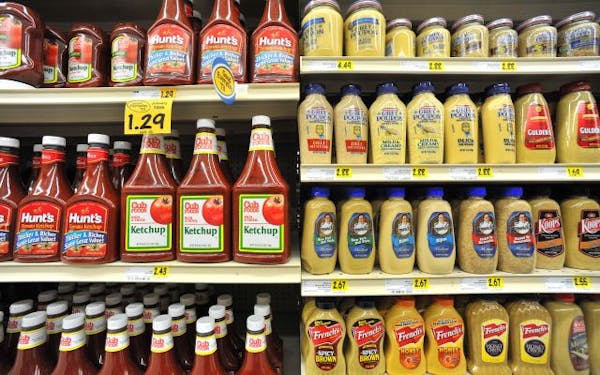Nearly 150 years ago, along a bend in the Mississippi, necessity powered innovation.
There was limited demand for the flour made from Minnesota's hard spring wheat, so local millers created new ways to grind the flour, improving its color, nutrition and shelf life. Soon Minnesota flour was recognized as the best in the world.
This innovation in food processing not only powered the economic engine that built a metropolitan area and a state, it fed millions of people.
Today, the Twin Cities area is recognized as a global leader in the food business and still helps feed the world. But now, we are also helping the world feed itself.
Roughly one in eight people in the world cannot afford enough food to sustain even a moderate level of physical activity. We call this "food insecurity."
Food insecurity is not just a humanitarian crisis; it is a business and economic crisis as well. Nearly a billion people around the world are unable to realize their human and economic potential because they are going hungry.
Lost productivity from undernutrition costs billions of dollars — dollars that could be used to educate more children, treat more patients and invest in economic development. In short, better nutrition and sustained food security can drive sustained economic growth.
In the developing world, ensuring food security requires strengthening the links between smallholder farmers and consumers. This link, in many cases, is the food-processing sector, including millers, bakers, pastamakers, canners and the like. Processing not only helps get food from growers to consumers, it spurs demand for other goods and services and creates jobs.
Across sub-Saharan Africa, there are a growing number of emerging food-processing businesses, many with dreams as big as those early Minneapolis millers' dreams. These successful entrepreneurs are building profitable businesses that can raise living standards in their communities by enabling them to buy more crops from local farmers; hire more workers; and provide higher-quality, less expensive food.
To maximize the opportunity, many processors are looking for technical and business counsel. Whether that's advice on developing a new product, fortifying a current product, accessing finance or making equipment purchases, knowledge gaps can hold these businesses back.
That is where Minnesota business innovation comes in again.
In 2008, General Mills founded Partners in Food Solutions, a pioneering not-for-profit that connects professionals at multinational food companies with small and growing food businesses in Africa. Cargill soon joined the effort, along with the Dutch nutrition and pharmaceuticals company Royal DSM and Swiss technology company Bühler.
The heart, soul and mind of Partners in Food Solutions are the more than 500 employees at these companies who have volunteered their time and skills to help more than 400 food companies in Ethiopia, Kenya, Malawi, Tanzania and Zambia. We know we can see these numbers double or triple in the very near future as more companies and donors lend their expertise and resources.
What's most remarkable about the Partners in Food Solutions model is that these volunteers are able to reach across 8,000 miles without even leaving their offices and labs. Food technologists, nutritionists, marketers and engineers, for example, use e-mail, Skype and our own cloud-based software to connect with the small businesses identified by TechnoServe and USAID, our partners in Africa, much the same way as they interact with their own colleagues around the world.
As Minnesota native and New York Times columnist Thomas Friedman wrote in his bestselling book, the world really is flat.
Though some may see this work as philanthropy, we see it as creating shared value with local African businesses, businesses that are eager to succeed in their own right.
When I was in Arusha, Tanzania, a couple of years ago, I met a distributor named Omaroi Omyo, who was picking up a shipment of flour. He asked what we were doing, so I told him about Partners in Food Solutions' work.
He then said, with a big smile on his face, "You are not just helping this company, you are helping Tanzania — farmers, company employees, people like me who sell the product and those who eat the food. Thank you."
Omaroi understood instantly what we are trying to do. And he said it better than I ever could.
----------------
Jeff Dykstra is CEO of Partners in Food Solutions. He will speak at the Great Decisions Conference on Global Food Security on Oct. 11.
Aid votes show Congress can still work
Readers Write: Cellphones in schools, potholes, child abuse, good journalism


